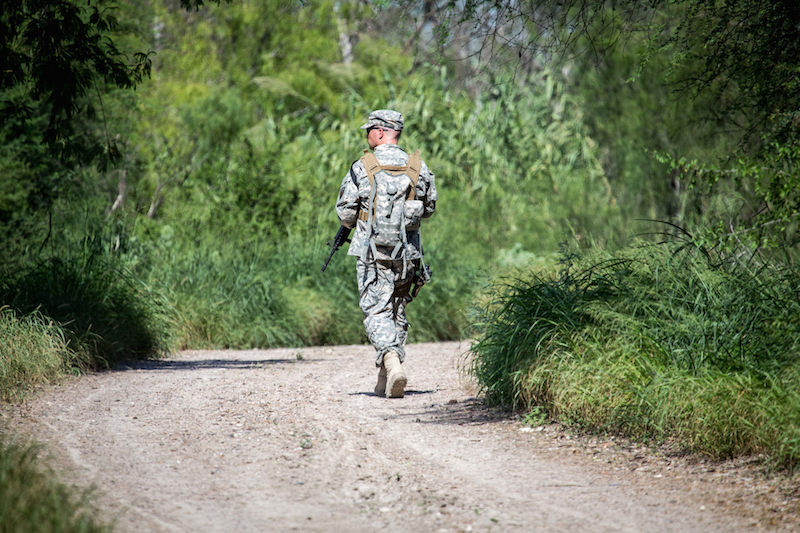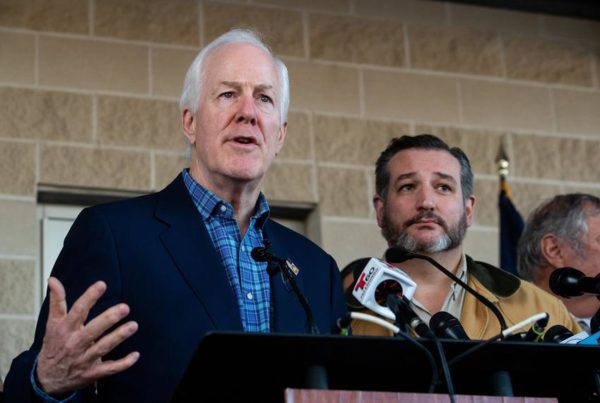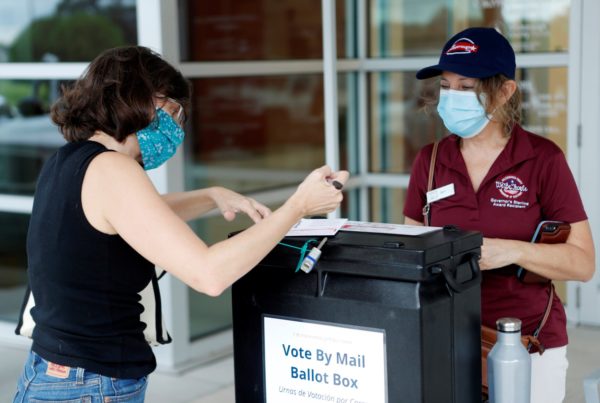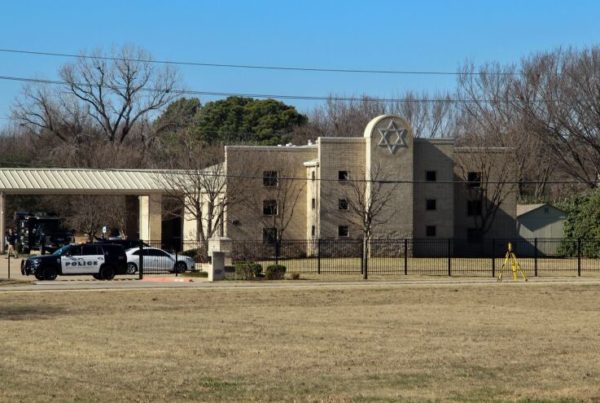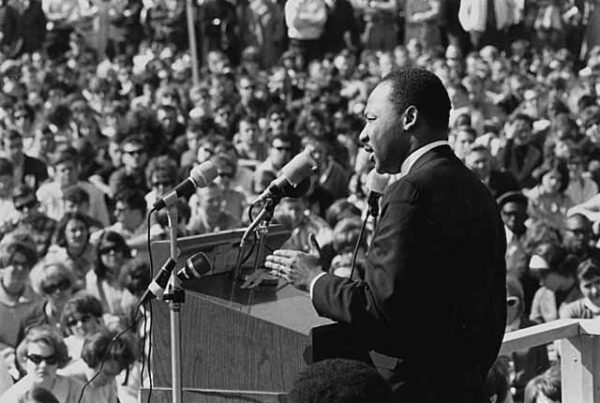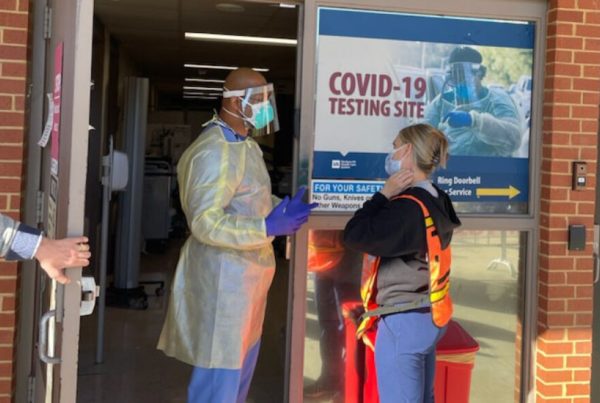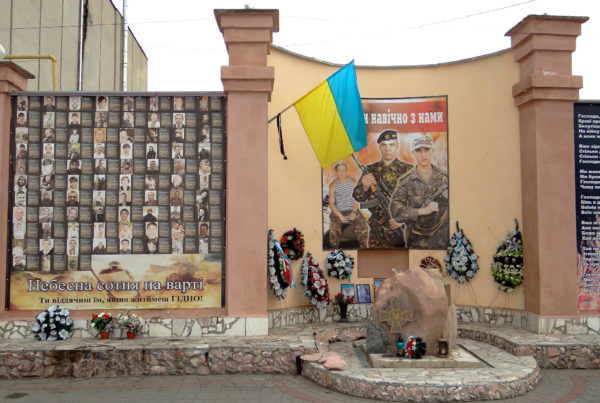Many of the Texas National Guard troops who’ve requested leave from Operation Lone Star due to hardship have been denied.
The troops are stationed in South Texas. The operation, launched by Gov. Greg Abbott in March of 2021, is supposed to stem illegal immigration and trafficking.
Steve Beynon is a reporter for military.com. He spoke to the Texas Standard about how the relationship between the hardship requests and morale. Listen to the interview above or read the transcript below.
This transcript has been edited lightly for clarity:
Texas Standard: You had a chance to take a look at some of these hardship requests. What are some of the reasons people are asking for one?
Steve Beynon: Soldiers can fill out what’s called a hardship request. It’s basically a formal way of asking their command to be excused from duty. Any mission that the military will ever do or training of. You’re always going to have a handful of soldiers saying, ‘Hey, my child is going to be born in a week. Can I come on late? Or I’m taking care of someone sick.” Or anything along those lines.
But the majority are financial constraints. National Guard members have civilian jobs. A lot of times those civilian jobs pay much more than National Guard duty. And so the problem is these soldiers are saying, hey, I’m going to make $15,000, $20,000 – In one case, I saw $30,000 – less than I would make if I stay home and do my civilian job. And the thing to stress is these kind of orders are supposed to be temporary and these soldiers have kids in schools, they have spouses that maybe have been laid off from the pandemic. And they just can’t take off for a yearlong mission making substantially less, than they would make – sometimes that check rivaling minimum wage.
After you went over these 150 hardship requests, how many were denied and what were the factors behind those denials?
At least 130 were denied. The reasoning is super unclear. There is a reality that when the military has to go somewhere, the soldiers have to show up. Commanders have to make tough decisions with hardship requests, and they have to triage who has the worst issues and who can maybe get by. And that’s difficult for commanders to figure out.
Soldiers are willing to serve – they volunteer to be in the National Guard and they know what that comes with, and they know what the pay looks like. But the problem is, once they get there, the mission is unclear. They show up. They don’t have much to do. And so this gets into a larger issue of their hanging around a lot. They’re playing cards. They’re drinking. And so the soldiers I talked to are happy to serve, but they’re like, I’m basically causing my family thousands of dollars, putting my house on the line, and I’m just drinking Jack Daniels all day.
We’ve covered some of the problems that have sprung up during this operation: morale being low. You talked about drinking, which has been a problem primarily, it seems, for off duty hours. Members of the guard have committed suicide. I’m curious as to how the hardship requests play a role in this, and it sounds like what you’re saying is a lot of soldiers just feel like they’re not doing anything. They should be able to go back home, right?
Correct. And these state orders are supposed to be very temporary. So for instance, you’ve got a lot of snowstorms, and guardsmen out there. They’re on state orders. They’ll be on for four or five days and that’s what those are used for. Troops don’t get health care on these orders. They can’t accrue benefits like the GI Bill or VA home loans. And we know the military, especially on the enlisted side, they’re paid pretty low. But the deal soldiers make with the government, basically when they enlist, they say, I’m going to take maybe a lower paycheck, but my college is going to get taken care of. I’m getting health care. I’m going to get a home loan through the Department of Veterans Affairs. And they don’t get that with these state orders.
We’ve heard from some federal soldiers is ‘I’m not sure why I’m here.’ The purpose of this mission. It seems to have been raised by a lot of guardsmen saying, well, we’re here because the governor wants us to be here, but we’re not doing anything.
Correct. I haven’t seen a lot of examples of tangible impact guardsmen are making on the border. I’m sure there are some running missions and some are having an impact on border safety. But the soldiers I talked to there, they’re not super gainfully employed the whole time. And that really bites hard when they’re leaving their families behind. Bills are piling up and most of them I talked to, including senior officers who talk to me, see themselves as political pawns. They see themselves as window dressing for Governor Abbott’s campaign and the pay issue is even a bigger problem. These soldiers are not getting paid at all. They’re not getting paid on time. Checks are coming in late at inconsistent amounts. One soldier I talked to was paid $100 for almost a month of work. So even when the pay comes in, it’s not. It’s not good.
I’ve heard the guard say that we’re talking about 80 soldiers out of the entire force having issues with pay? Is that what you’re hearing?
That’s what they say. I’ve talked to dozens of soldiers. They all have had issues or know of people with issues. I’m sure Texas is making strides to try to figure out the problem, but this really raises an issue. This has been a long mission. I couldn’t get a clear answer from Texas on why this issue exists to begin with. And I don’t know if it would be acceptable at a civilian company. Microsoft can’t just not pay 1% of its workforce and not think it’s going to have a lot of problems.


